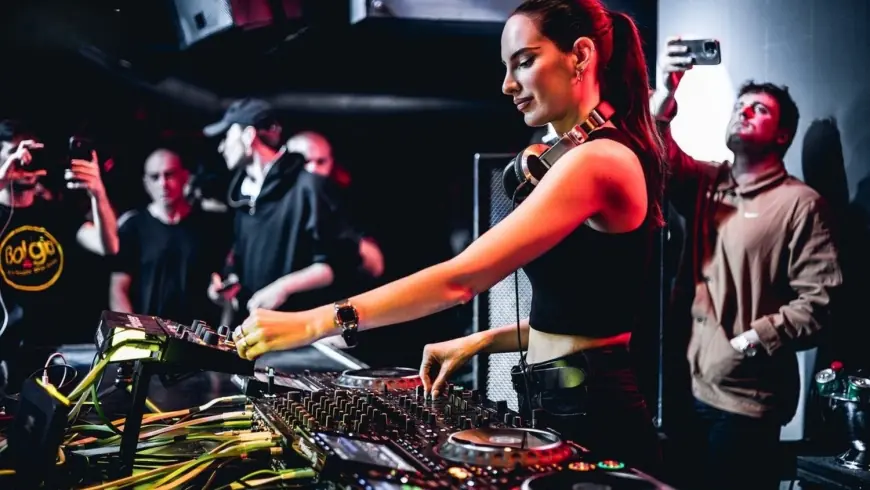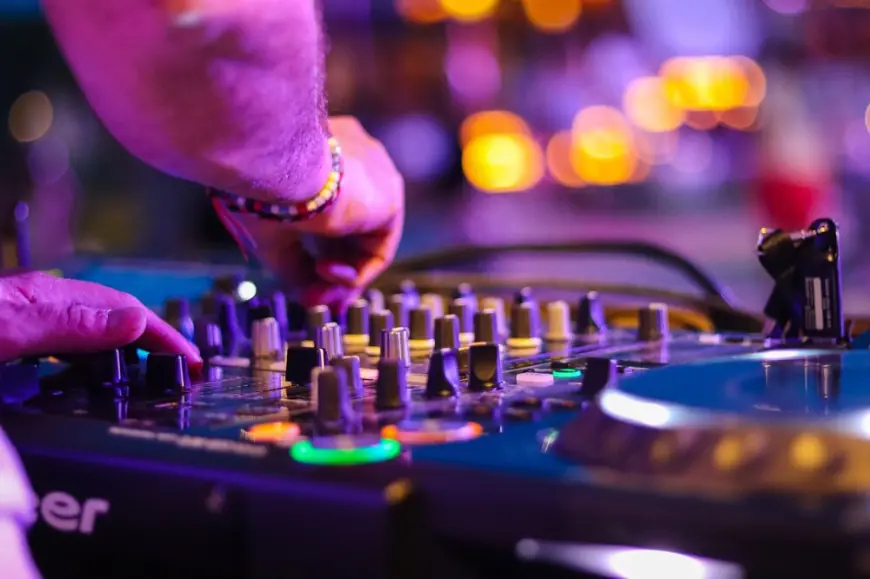Bar Dj Vs. Club Dj: Understanding The Differences
Whether you're drawn to the laid-back versatility of being a bar DJ or the high-energy intensity of a club DJ, both roles offer unique opportunities to showcase your talent.

Bar Dj Vs. Club Dj: Understanding The Differences
When it comes to the world of DJing, there are distinct differences between being a bar DJ and a club DJ. Both roles demand skill, creativity, and an understanding of the crowd, but the environment and expectations differ significantly. If you're considering a career as a bar DJ or club DJ or simply curious about what sets them apart, this guide will help you understand the nuances of each role.
The Bar Atmosphere vs. Club Vibes
A bar DJ operates in an environment where the crowd's energy ebbs and flows throughout the night. Unlike a DJ in clubs, where patrons often stay for the entire event, bar-goers tend to drift in and out. This constant turnover means a bar DJ must create a setlist that caters to diverse tastes while maintaining the venue's overall vibe. Bars often serve as social hubs, where patrons may focus on conversations or casual enjoyment of the music.
In contrast, clubs with live music are designed for high-energy experiences. The crowd usually arrives with the intent to dance and stay for the duration of the event. This allows a club DJ to build a cohesive set that grows in intensity, keeping the energy levels high throughout the night.
Crowd Dynamics and Engagement
The dynamic nature of a bar's crowd presents unique challenges. As a bar DJ, you'll often encounter a mix of patrons—some starting their evening and others casually winding down. The key is adaptability. A bar DJ must be skilled at reading the room and adjusting the music to keep everyone engaged, create a relaxed lounge atmosphere, or gradually build energy as the night progresses.
On the other hand, a DJ for clubs typically plays to a more focused audience. People go to clubs specifically to enjoy the music and dance, so the club DJ has the freedom to dive deeper into a specific genre. In local clubs with live music, DJs often collaborate with other performers, adding a unique layer to their sets.
Music Variety and Requests
One of the hallmarks of being a bar DJ is versatility. Bars rarely stick to a single genre, and patrons often request songs on the spot. As a result, a DJ in bar settings must be comfortable playing an open format. This might include transitioning seamlessly from pop hits to classic rock or weaving in trending tracks that resonate with the diverse audience. Taking requests is part of the job, and it's a great way to connect with the crowd and make their night memorable.
In contrast, clubs with live music or dance-focused events often centre around specific genres, such as techno, house, or hip-hop. Patrons expect the club DJ to deliver a curated musical journey that aligns with the night's theme. Requests are less common in clubs, allowing DJs to maintain a more structured flow.
Length of Sets and Energy Management
A bar DJ typically has more extended sets than a DJ for club. Bars often open earlier and stay open as long as clubs, meaning a bar DJ needs to pace their music to avoid burnout while keeping the atmosphere lively. Balancing the energy is crucial, especially if the venue's crowd transitions from an early-evening chill to a late-night party vibe.
A club DJ's set is usually shorter but more intense. The goal is to deliver a high-energy performance that keeps the dancefloor packed from start to finish. Clubs often use rotating DJs to maintain a fresh and dynamic lineup throughout the night, ensuring the energy remains high.
Venue Expectations
Bars often cater to a wide demographic, and as a bar DJ, you're expected to accommodate this variety. The music must enhance the venue's ambience without overshadowing the social interactions. Knowing the venue's theme and clientele is essential, whether it's a trendy cocktail lounge or a bustling sports bar.
In local clubs with live music, the focus is squarely on the performance. The DJ's role is to complement or amplify the live acts, creating a seamless blend of live and pre-recorded music. DJ clubbing events often involve more technical setups, like synchronized lighting and effects, to enhance the overall experience.
Building Connections with the Audience
A bar DJ thrives on personal interaction. From taking requests to observing the crowd's reactions, a DJ in bar settings builds a rapport that keeps patrons coming back. Playing a requested song or acknowledging a group's vibe can create a more intimate and memorable experience for the audience.
For a club DJ, the connection is more about energy than personal interaction. The goal is to create a unified experience for the crowd, using music and performance to evoke emotions and keep the dancefloor alive. In larger clubs with live music, the DJ's role often extends to engaging with the audience through visuals and stage presence.
Technical Skills and Setup
Both bar and club DJs require technical expertise, but the demands can differ. A bar DJ might need to manage a more straightforward setup, focusing more on creating a versatile playlist and handling requests on the fly. Meanwhile, a club DJ often uses advanced equipment, such as mixers, turntables, and effects units, to deliver a polished and dynamic performance.
Choosing Your Path: Bar DJ or Club DJ?
Whether you're drawn to the laid-back versatility of being a bar DJ or the high-energy intensity of a club DJ, both roles offer unique opportunities to showcase your talent. For aspiring DJs, starting as a DJ for bar can be an excellent way to build skills, gain experience, and learn how to adapt to different crowds. Transitioning to a DJ for clubs can open doors to larger venues and more specialized performances.
Ultimately, choosing between being a DJ in bar venues or a DJ for clubs comes down to your personal preferences and career goals. Both paths offer rewarding experiences and the chance to create unforgettable nights for your audience. So, whether spinning tracks at local clubs with live music or entertaining a lively bar crowd, the key is to stay passionate, versatile, and in tune with your audience.


 gentonevents
gentonevents 










